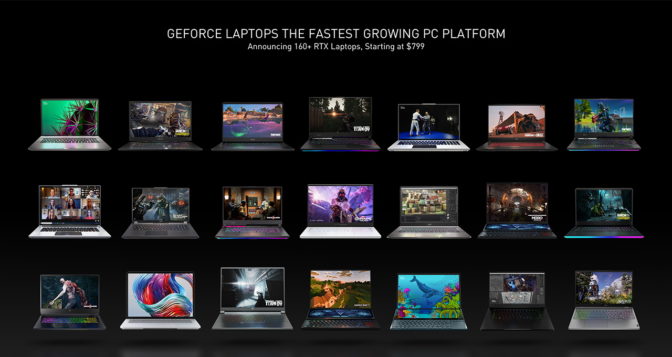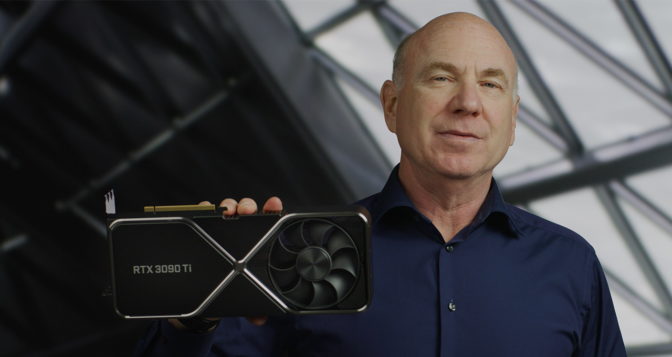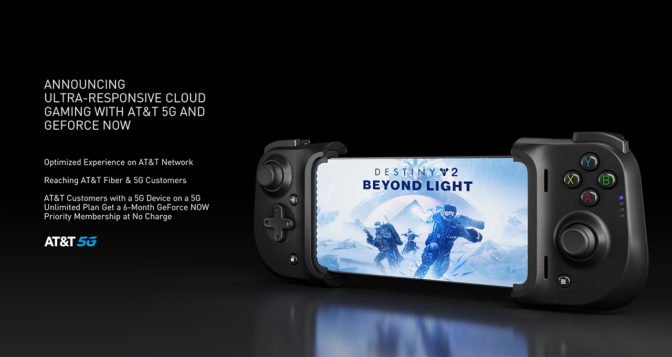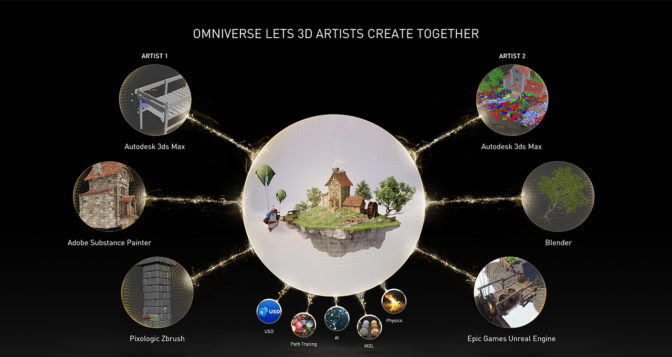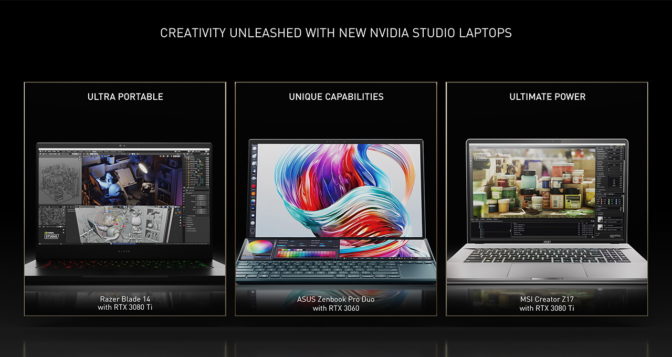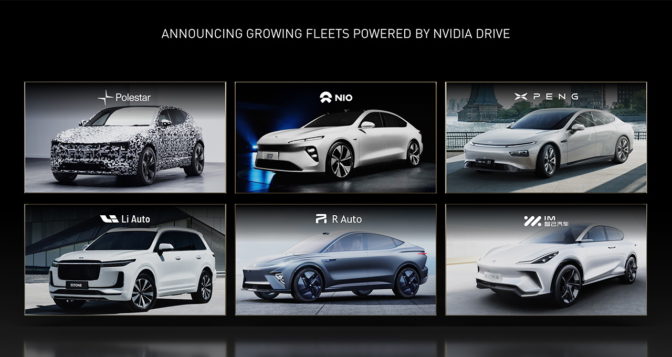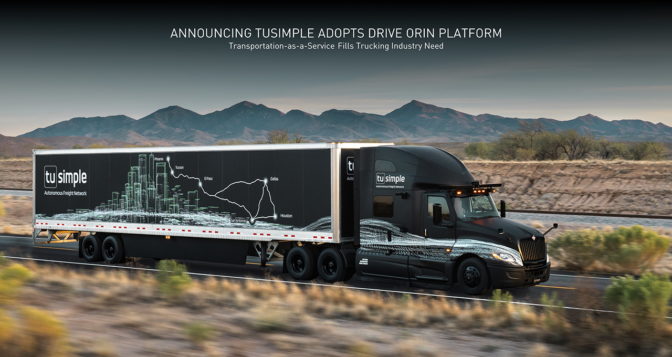RTX 3080 Ti Laptops Lead News-Packed Address at CES
[ad_1]
Putting the power of graphics and AI at the fingertips of more users than ever, NVIDIA announced today new laptops and autonomous vehicles using GeForce RTX and NVIDIA AI platforms and expanded reach for GeForce NOW cloud gaming across Samsung TVs and the AT&T network.
A virtual address prior to CES showed next-gen games, new tools for creating virtual worlds, and AI-powered vehicles — all accelerated by NVIDIA technologies.
160-Plus Portable Powerhouses
“Ray tracing and AI are defining the next generation of content,” said Jeff Fisher, senior vice president of NVIDIA’s GeForce business, announcing more than 160 thin-and-light laptops using RTX 30 Series GPUs in a smorgasbord of mobile designs.
They will serve 3 billion gamers and tens of millions of content creators worldwide, who are increasingly turning to portable PCs.
Many of the systems will pack a new GeForce RTX 3080 Ti laptop GPU, the first time the flagship 80 Ti class comes to mobile PCs. It sports 16GB of the fastest ever GDDR6 memory in a laptop and delivers higher performance than the desktop TITAN RTX, with prices starting at $2,499.
More will light up with the GeForce RTX 3070 Ti laptop GPU, the newest member of our fastest-growing class of GPUs. It can drive displays at 100 frames/second with 1,440-pixel resolution, at prices starting at $1,499.
Laptops with the new GPUs will be available starting Feb. 1. They bring a fourth generation of Max-Q Technologies, a systems design approach that enables the thinnest, lightest, quietest gaming laptops.
The latest Max-Q applies AI to optimally balance GPU/CPU power use, battery discharge, image quality and frame rates. Laptops running it can provide up to 70 percent more battery life while delivering more performance.
Mainstream and Monster GPUs
Fisher also announced the GeForce RTX 3050, which brings ray tracing and accelerated AI to mainstream desktops.
The GPU lets mass market PCs run the latest games at 60 frames per second, thanks to graphics and AI cores in its NVIDIA Ampere architecture.
The RTX 3050 sports 8GB of GDDR6 memory. The card will be available from partners worldwide on Jan. 27 starting at $249.
“RTX is the new standard, and the GeForce RTX 3050 makes it more accessible than ever,” said Fisher, showing a “monster” RTX 3090 Ti (pictured below) also in the wings.
The RTX 3090 Ti will pack 24GB of GDDR6X running at 21 Gbit/s, the fastest memory ever. The GPU will crank out 40 teraflops for shaders, 78 teraflops for ray tracing and a whopping 320 teraflops of AI muscle. More details will be coming later this month.
New Initiatives with AT&T, Samsung
Giving high-performance mobile gaming new wings, AT&T and NVIDIA are working together to provide customers an optimized experience. And AT&T customers are getting a special offer to enjoy NVIDIA GeForce NOW on 5G.
“Starting today, AT&T customers with a 5G device on a qualifying plan, can get a six-month GeForce NOW Priority Membership at no charge,” said Fisher.
For its part, Samsung will offer NVIDIA’s cloud gaming service on its smart TVs through the Samsung Gaming Hub around midyear.
It’s the latest move to bring GeForce NOW to the living room. In November, LG showed a beta version of the service on its 2021 WebOS smart TVs.
As for games, GeForce NOW continues to expand support for the Electronic Arts catalog, adding Battlefield 4 and Battlefield 5 to GeForce NOW’s online library of more than 1,100 PC games played by 15 million subscribers.
Heart-Pounding RTX and Reflex Games
Speaking of new games, NVIDIA announced 10 new RTX games.
Fisher showed clips from four upcoming titles that this year will support RTX, DLSS — NVIDIA’s AI-powered graphics enhancing technology — or both.
Escape From Tarkov and Rainbow Six Extraction are adding DLSS, while The Day Before and Dying Light 2 Stay Human are adding both DLSS and ray tracing.
In addition, seven new titles support NVIDIA Reflex for low-latency gameplay. They include Sony’s God of War, Rainbow Six Extraction and iRacing, taking Reflex into the world’s premier online racing simulator.
And we’re raising the bar in esports. A new class of 27-inch esports displays with 1440-pixel resolution and G-SYNC at up to 360 Hz refresh rates will be available soon from AOC, ASUS, MSI and ViewSonic.
Building 3D Virtual Worlds
For the 45 million professionals who create games, movies and more, Fisher described tools transforming their workflows.
“We are at the dawn of the next digital frontier. Interconnected 3D virtual worlds … with shops, homes, people, robots, factories, museums … will be built by an expanding number of creators, collaborating across the globe,” he said.
NVIDIA Omniverse, the powerful platform for artists to collaborate and accelerate 3D work, remains free and is now generally available for GeForce and NVIDIA RTX Studio creators.
Omniverse uses Pixar’s open-standard Universal Scene Description (USD) to connect tools from more than 40 software development partners into a single 3D design platform. That lets creators across the globe collaborate in Omniverse on shared 3D workflows.
“This is the future of 3D content creation and how virtual worlds will be built,” Fisher said.
He detailed new capabilities in Omniverse, including:
- Omniverse Nucleus Cloud, a one-click-to-collaborate 3D scene sharing feature, now in early access
- Updates to Omniverse Audio2Face, an AI-enabled app that animates a 3D face based on an audio track, including direct export to Epic’s MetaHuman for creating realistic characters
- New assets from Mechwarrior 5 and Shadow Warrior 3 added to the Omniverse Machinima library
- And a wealth of free digital assets now available in the Omniverse launcher from leading 3D marketplaces.
In addition, we’ve upgraded NVIDIA Canvas, our Studio app that converts brushstrokes into photorealistic images. Available free to download here, it now supports 4x the resolution and new materials like flowers and bushes thanks to the efforts of NVIDIA researchers who developed GauGAN2.
It’s part of NVIDIA Studio’s broad and deep software stack, which accelerates more than 200 of the industry’s top creative applications.
All that software is available in systems as svelte as the Razer Blade 14, a new ultraportable with an RTX 3080 Ti.
“I feel like I can go anywhere with it and still am able to produce the quality artwork that I could do at home,” said a 3D artist who took it on a test drive and shared his experience in the special address.
Taking AI to the Street
In autonomous cars and trucks — another hot topic at CES — NVIDIA announced more companies adopting its open DRIVE Hyperion platform that includes a high-performance computer and sensor architecture meeting the safety requirements of fully autonomous vehicles.
The latest generation DRIVE Hyperion 8 is designed with redundant NVIDIA DRIVE Orin systems-on-a-chip, 12 state-of-the-art surround cameras, nine radar, 12 ultrasonics, one front-facing lidar and three interior-sensing cameras. It’s architected to be functionally safe, so that if one computer or sensor fails, there is a back up available to ensure that the AV can drive its passengers to a safe place.
Electric vehicle makers such as Volvo-backed Polestar and EV companies in China, including NIO, Xpeng, Li Auto, R Auto and IM Motors have all adopted DRIVE Hyperion.
“These new electric cars will get better and better over time with each over-the-air update,” said Ali Kani, vice president and general manager of NVIDIA’s automotive business.
“Such companies can benefit from new business models that are software driven,” he added.
Robotaxi services like Cruise, Zoox and DiDi and trucking services like Volvo, Navistar and Plus are also embracing DRIVE Hyperion.
Autonomous trucking company TuSimple announced at CES that it will build its new platform on NVIDIA DRIVE Orin. It’s working with leading delivery companies such as UPS, Navistar and Penske, and its technology has already improved arrival times for long-haul routes of the U.S. Postal Service.
Such vehicles will help fill an estimated shortage of more than 140,000 drivers by 2027 in the U.S. alone.
In addition, five leading automotive suppliers — Desay, Flex, Quanta, Valeo and ZF — now support DRIVE Hyperion.
Kani ended the session with a demo of NVIDIA DRIVE Concierge.
An always-on, digital assistant for drivers, it’s one example of helpful agents created with NVIDIA Omniverse Avatar using the company’s speech AI, computer vision, natural language understanding, recommendation engines and simulation technologies.
DRIVE Concierge is the latest addition to NVIDIA’s rich real-time, AI-based software stack for autonomous vehicles. The end-to-end solution also includes code to train AI models in the cloud and run complex simulations in data centers to safely test and validate an entire AV system.
“From AI in the car to AI in the cloud, NVIDIA is paving the way to safer and more efficient transportation,” said Kani.
For more news, check out our CES page and watch the full special address below.
[ad_2]












